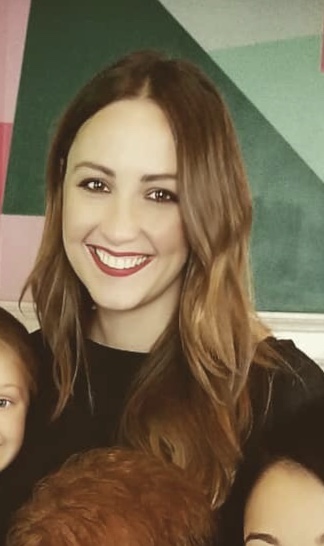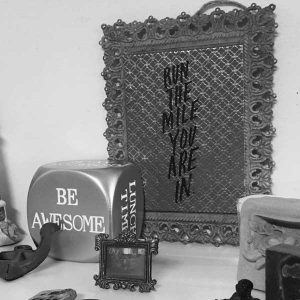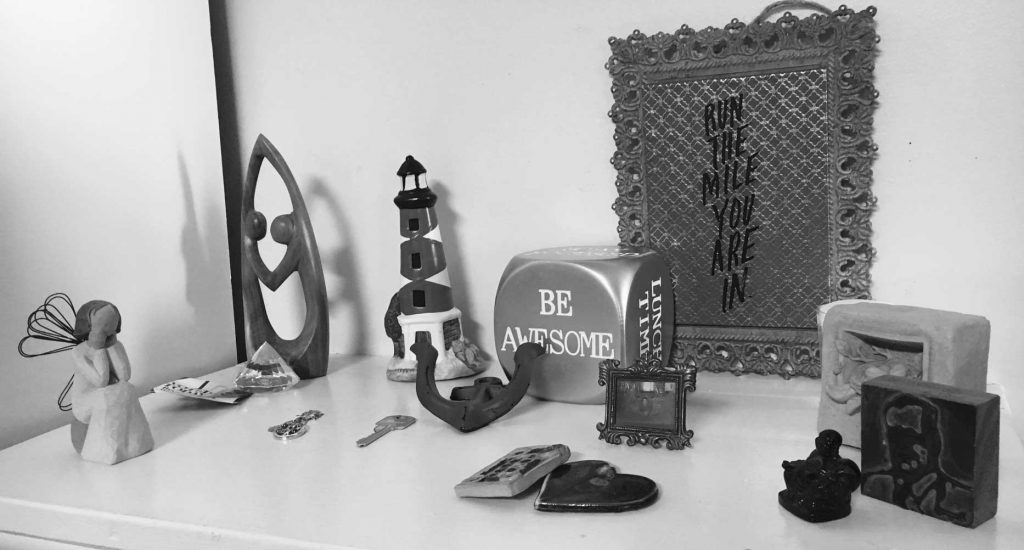A Year of Practice: The Story That Has No End

Author: Alana Russotti, LCSW, IMH-E©, practices as the Clinical Supervisor of SPCC’s Therapeutic Visitation Program. In this piece, she reflects on the trepidation and ultimate gratitude of one of her additional roles as co-facilitator of SPCC’s first Reflective Supervision Learning Collaborative.
When SPCC’s Clinical Director and my supervisor and mentor, Sarah Fitzgibbons, asked me to co-facilitate our agency’s first year-long Reflective Supervision Learning Collaborative with her, I responded as I most always do when a new exciting idea comes my way—with an enthusiastic, “yes!” This of course was promptly followed by perhaps a more measured and honest internal reaction of, “what in the world does she think I would have to contribute?!”
Before I share more, allow me to lay out some foundation:
Rebecca Shamoon-Shanok (2016) describes Reflective Supervision as “… a relationship for learning. The partnership nurtures a process of remembering, reviewing, and thinking out loud about a specific child, the people who surround that child, and what happens (or doesn’t) between them…it could be said that reflective supervision enhances vision, clarifying what is seen and even what is see-able. In a real sense, the effect of reflective supervision is that it nourishes “supervision”—the ability to see further, deeper and more.”
Through research and experience in the field of Infant Mental Health, we know that working with infants, young children and their families is difficult work that ignites complex and sometimes buried feelings in us all. To do this work, and do it well, we must be supported through skillful and experienced Reflective Supervisors. In addition to Reflective Supervision supporting infant and young child outcomes through the provision of quality, nuanced and relational services, it retains employees, reduces vicarious trauma and burnout, and increases staff satisfaction. Many models in our community require Reflective Supervision (NYS Association for Infant Mental Health Endorsement, Nurse Family Partnership, Child-Parent Psychotherapy, Parents as Teachers), but our community’s roster of leaders and supervisors practicing Reflective Supervision, as it is defined by the field of Infant Mental Health, does not support the tremendous need.
Here’s where the conception of SPCC’s Reflective Supervision Learning Collaborative comes in.
I’ve been practicing Reflective Supervision for about 4 years now. Practicing receiving it….practicing providing it… I’ll point out that the use of the word ‘practice’ is intentional.
As a receiver of Reflective Supervision, I practice taking risks in what I share in the space that Sarah has created. Sometimes I feel clunky and tangled, unsure if the content or emotion coming to the surface belongs or is allowed. Sometimes I feel confident and proud and need Sarah to bear witness to growth I have found. At times Sarah and I together practice being in harmony, as well as in conflict; then comes the tricky work of figuring out how to repair our relationship.
As a provider of Reflective Supervision, I practice holding space and silence; I struggle with the internal turmoil of content that my supervisees share that poke at my innermost ghosts. I practice being authentic and honest while maintaining care and warmth. I rehearse, again and again, balancing the emotional and relational content that is expressed to me, while holding questions about the infants, children, and families being served. I wonder about racial inequity and structural racism and further wonder what I’m not able or willing to see because of the intersection of my privilege. I practice weaving the roles of reflectively supervising while maintaining best practice and quality assurance of service; of holding up the mirror to a supervisee in the sometimes impatient hope that they will be able to do the same for their clients.
But to practice vulnerably, in front of 10 multi-disciplinary leaders in our community for this year-long endeavor poked at the question, which so often gets provoked in me when my confidence is wavering; Am I good enough?
In planning for the Learning Collaborative, Sarah and I fumbled, found our way, and fumbled again as we decided how to lead this group. Sarah tapped into her resources and connected with colleagues and experts across the country; we combed through books and literature and reflected on our own experiences and ways of knowing; we moved 47 post-it notes with key ideas back and forth into different categories, and threw them away… before ultimately retrieving them from the trash and smoothing them back out. We held proverbial mirrors up to each other and struggled to stay steadfast in an idea central to the parallel process of Reflective Supervision, that our way of being ‘teaches’ far more than any words put at the front of the room. What will this be like for participants? How much content do we share? How much space should we leave? Will the relationships necessary to do this work be formed? And the question I just can’t seem to escape, “Will I be good enough?” Our questions and wonderings seemed to mostly lead to more curiosity, which I think we came to embrace and trust. We started to craft the story, without knowing the plot twists or ending; we decided to honor the practice of Reflective Supervision and embrace not knowing and trust the process.

Finally, in November 2017, 10 supervisors and leaders of agencies serving children 0-6, and 2 hopeful, yet unsure facilitators gathered for the first time. Throughout our 12 months the group surprised Sarah & me again and again. Each month a little more vulnerability was shown, risks were taken, connections were made, trust was demonstrated—questions that we didn’t know needed asking were raised, struggles were shared and successes were celebrated. How was it that these people we were supposed to be training, were teaching us so much?
On our final day, in October 2018, we gathered together one last time. Each participant was asked to bring something to the group that symbolized their experience. Some brought tokens that they passed out to each member, some brought photos or objects that represented the woods through which we all walked. As the cliché goes, we laughed, we cried, and we reflected on what we all gleaned. In our final few moments, one of our remarkable group members gifted us with the following poem she authored:
Reflection
You bring me their story
A thousand pieces of broken mirror
Each word
Each emotion
Cuts our soul as we put the mirror back together
We now see the family more clearly in the mirror
We now see ourselves more clearly in the mirror
The story is not over
But the mirror is whole…for today-Kathleen Howard-Schoeberl, 2018
And Kath was right. We did find clarity at the end of this story—clarity that, while I’m not sure we realized it at the beginning, it was essential for part of the journey to consist of broken and shattered pieces. The process of this Learning Collaborative had to mirror what we ultimately hope those we supervise can offer to the infants and children they work on behalf of and with: joining with families in pain and being willing to see the jagged edges, while concurrently being able to see the larger and larger reflection that appears as we piece the fragments back together. The incredible members of this Learning Collaborative also taught me that “being good enough” as a leader and provider of Reflective Supervision isn’t necessarily about having the answers, but is more about being authentically curious enough to ask the questions.
I’m so grateful that this remarkable group gave me yet again, another opportunity to practice. So I think, perhaps, that the story has just begun…




